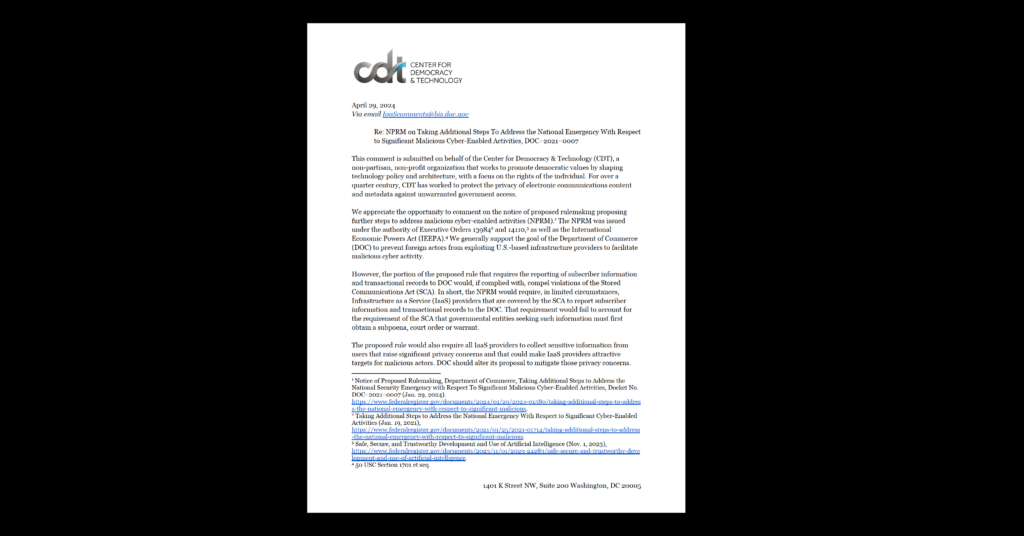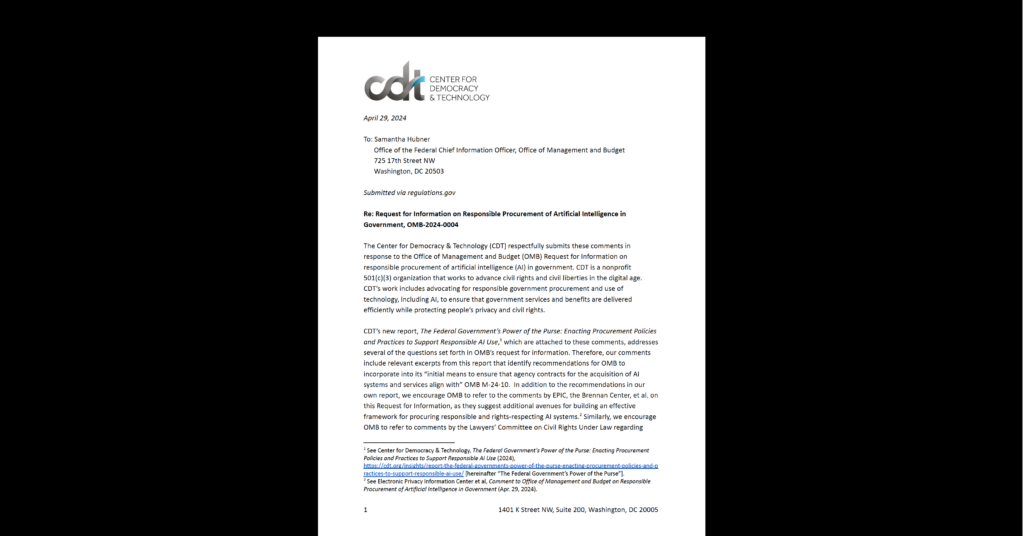Cybersecurity & Standards, Open Internet, Privacy & Data
Letter to House of Representatives leadership opposing H.R. 2666
The Honorable Paul Ryan, Speaker
U.S. House of Representatives
The Honorable Nancy Pelosi, Democratic Leader
U.S. House of Representatives
April 13, 2016
Dear Speaker Ryan and Leader Pelosi:
The undersigned organizations strongly urge you to oppose H.R. 2666, the “No Rate Regulation of Broadband Internet Access Act.” A broad coalition of companies, consumer advocates, and public interest groups wrote to you this week detailing the many ways this legislation would undermine the public interest and the Open Internet; we are particularly concerned about the bill’s impact on consumer privacy.[1]
H.R. 2666 would undermine the Federal Communications Commission’s ability to protect consumers from an emerging online “privacy divide” that leaves low-income Americans with fewer privacy options than are available to the wealthy. Indeed, the FCC is currently seeking comments on proposed rules governing the privacy obligations of broadband providers. As part of that proposal, the FCC has asked the American public to weigh in on business practices that offer some broadband subscribers financial inducements for consent to use and share their personal information.[2] A number of prominent civil rights and other public interest organizations have urged the FCC to carefully examine this issue so that privacy does not become a luxury available only to those who can afford it.[3]
There is a difference between ensuring that consumers’ right to control their personal information is not contingent on income level, and rate regulation—setting the prices broadband providers may charge for service. The overbroad language in H.R. 2666 fails to recognize that difference, putting consumer privacy at risk.
We strongly urge you to stand up for consumers and to preserve the FCC’s ability to protect them against privacy violations and other unreasonable practices by voting against H.R. 2666.
Sincerely,
Access Humboldt
Access Sonoma Broadband
Akaku Maui Community Media
ASC3
Broadband Alliance of Mendocino County
California Center for Rural Policy
Campaign for a Commercial-Free
Childhood
Center for Democracy & Technology
Center for Digital Democracy
Center for Rural Strategies
Chicago Consumer Coalition
Consumer Action
Consumer Federation of America
Consumer Federation of California
Consumer Watchdog
Institute for Local Self-Reliance
Maryland Consumer Rights Coalition
National Consumer Law Center, on
behalf of its low-income clients
National Consumers League
National Digital Inclusion Alliance
New America’s Open Technology
Institute
Online Trust Alliance
Oregon Consumer League
Privacy Rights Clearinghouse
Public Health Advocacy Institute
Public Knowledge
Tribal Digital Village Network
U.S. PIRG
X-Lab
[1] “Rate regulation” is when an agency sets a specific price. See Fed. Energy Reg. Comm’n v. Elec. Power Supply Assoc., 577 U.S. ____ (2016). But this bill includes an overbroad definition of “rate regulation” that would extend to the FCC’s ability to review the reasonableness of rates set by broadband providers. As a result, this bill would leave the FCC powerless to protect consumers even against clear price gouging. See Harold Feld, The One Line Difference Between Broadband Rate Setting and Price Gouging, Medium (Apr. 8, 2016), https://bit.ly/1SMGW0t.
[2] Protecting the Privacy of Customers of Broadband and Other Telecommunications Services, Notice of Proposed Rulemaking, ¶ 259 (Apr. 1, 2016).
[3] Letter from Public Interest Organizations to Chairman Wheeler (Mar. 16, 2016), https://bit.ly/1SMGPBV.


